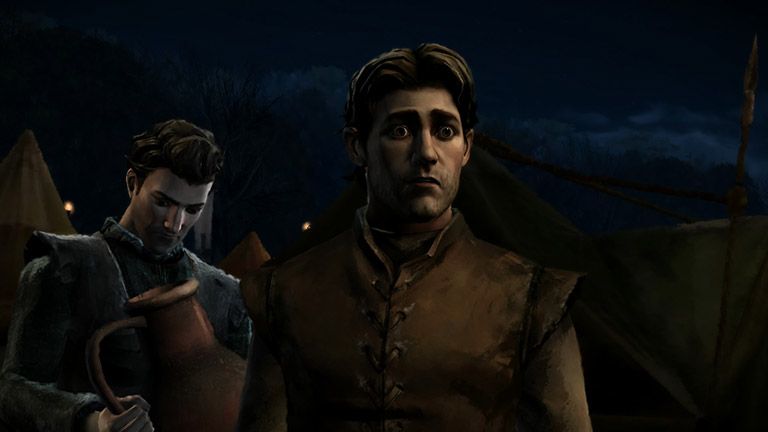“Is it more important that your choices in a game matter, or that they feel like they matter?” This inquiry kicked off my review of the inaugural episode of Telltale's Game of Thrones series nearly a year ago, and it has been a persistent thought as I navigated through each subsequent chapter. Playing Game of Thrones feels like traversing a house of mirrors; at first glance, it appears to offer endless paths and overwhelming possibilities, but soon you realize it’s merely an illusion. Telltale's storytelling approach has long embraced this structure, where divergent choices are funneled into convergent paths, creating an experience that resembles a film with light interactive elements such as dialogue choices and quick-time events. In the moment, the illusion of shaping the story feels real, but watching alternate outcomes on YouTube can quickly shatter that perception. After enduring six episodes and countless decisions, only a handful truly impacted my experience.
However, perhaps the significance of player choice doesn't resonate with everyone. For some, enjoying a compelling narrative without full divergence is perfectly acceptable. If you're a fan of the books or the HBO series and are eager for new content, you might wonder if the game is up to par. The answer largely depends on your expectations from the Game of Thrones experience. Unlike the gripping pacing of the show, episodes in the game tend to drag on, feeling padded with filler content, especially in the early segments. Transitioning from the game to the show starkly highlights a troubling reality: the game lacks excitement and depth. While it presents some intriguing narrative elements not seen elsewhere, it ultimately falls short of matching the show's quality.
Telltale's Game of Thrones chronicles the aftermath of the infamous Red Wedding through the perspective of House Forrester, a lesser-known family that appears in the books but not the show. Following the chaos, the Forresters struggle to survive amid shifting allegiances. Their fate may seem insignificant against the larger tapestry of Westeros, yet their story remains a harrowing one, particularly as rival House Whitehill attempts to exploit the situation to dominate the ironwood trade and extinguish House Forrester for good. Throughout the six episodes, players take on the roles of various Forrester family members, each trying to protect their lineage. Some of these characters meet swift ends, leading to a constant turnover of perspectives. Although the outcomes are ultimately predetermined, the tension of not knowing who will survive can create genuine anxiety during encounters with known characters from the series, such as Ramsay Snow and Cersei Lannister.
Even if your primary interest lies in the narrative and you’re comfortable with a linear journey rather than a unique one shaped by your choices, the quality of the writing suffers. Conversations feel disjointed, with characters often speaking past one another. In one instance, I chose a dialogue option that explicitly welcomed a character to Castle Black, yet the character responded with something entirely different. This disconnection illustrates how Telltale’s scripts struggle to adapt to player choices, ultimately undermining the experience. During my second playthrough of Episode Six, I opted for silence during dialogue prompts to test character responses, and found little variation; this demonstrated how little my input mattered and led to a story that felt less believable, as events unfolded in a nonsensical manner to keep players on a predetermined path.
Unlock Excitement With Active Codes For Weapon Kit
The Hidden Gem Of Gaming: A Deep Dive Into Pseudoregalia
Unlocking The Secrets Of Registeel In Pokémon GO: Everything You Need To Know!




